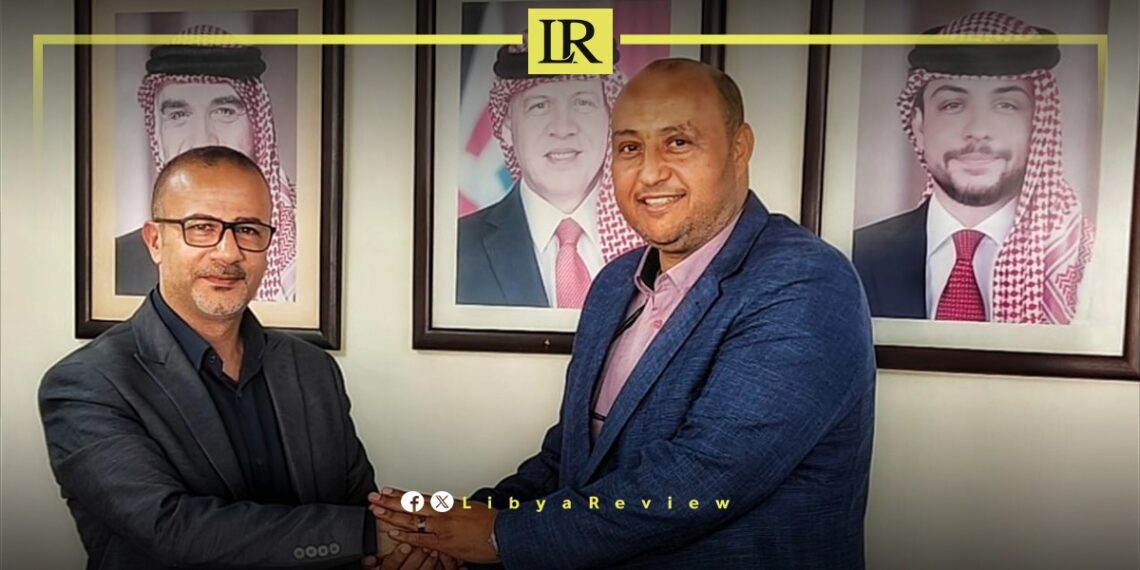Rafik Mohammed Al-Fakhri, Advisor to the Libyan Chairman of the Competition and Anti-Monopoly Council, met with Jamil Zayed, Head of the Jordanian Directorate of Competition and Anti-Monopoly Practices in Amman today, Monday.
The meeting was initiated under the direction of Salama Ibrahim Al-Ghweil, the Libyan Chairman, who is keen to leverage Jordan’s leading experience in the field of competition, particularly as the Jordanian Directorate is considered a regional model in the Arab world.
During the session, the participants reviewed the plans and mechanisms adopted by the Jordanian Directorate since its establishment. They also discussed the challenges faced by both sides and explored solutions. Both parties emphasized the importance of mutual cooperation in the field of competition, exchanging expertise and information, and organizing workshops and scientific seminars.
In this context, an agreement was reached to prepare a memorandum of understanding between the Libyan and Jordanian sides. This memorandum aims to enhance bilateral cooperation in the field of competition and establish mechanisms for coordination and consultation.
The Libyan advisor expressed his appreciation for the efforts made by the Jordanian Directorate in enhancing competition and protecting consumers, highlighting the significance of this partnership in supporting the Libyan national economy.
Libya has been in chaos since a NATO-backed uprising toppled longtime leader Muammar Gaddafi in 2011. The county has for years been split between rival administrations.
Libya’s economy, heavily reliant on oil, has suffered due to the ongoing conflict. The instability has led to fluctuations in oil production and prices, impacting the global oil market and Libya’s economy.
The conflict has led to a significant humanitarian crisis in Libya, with thousands of people killed, and many more displaced. Migrants and refugees using Libya as a transit point to Europe have also faced dire conditions.
The planned elections for December 2021 were delayed due to disagreements over election laws and the eligibility of certain candidates. This delay has raised concerns about the feasibility of a peaceful political transition.
Despite the ceasefire, security remains a significant concern with sporadic fighting and the presence of mercenaries and foreign fighters. The unification of the military and the removal of foreign forces are crucial challenges.


